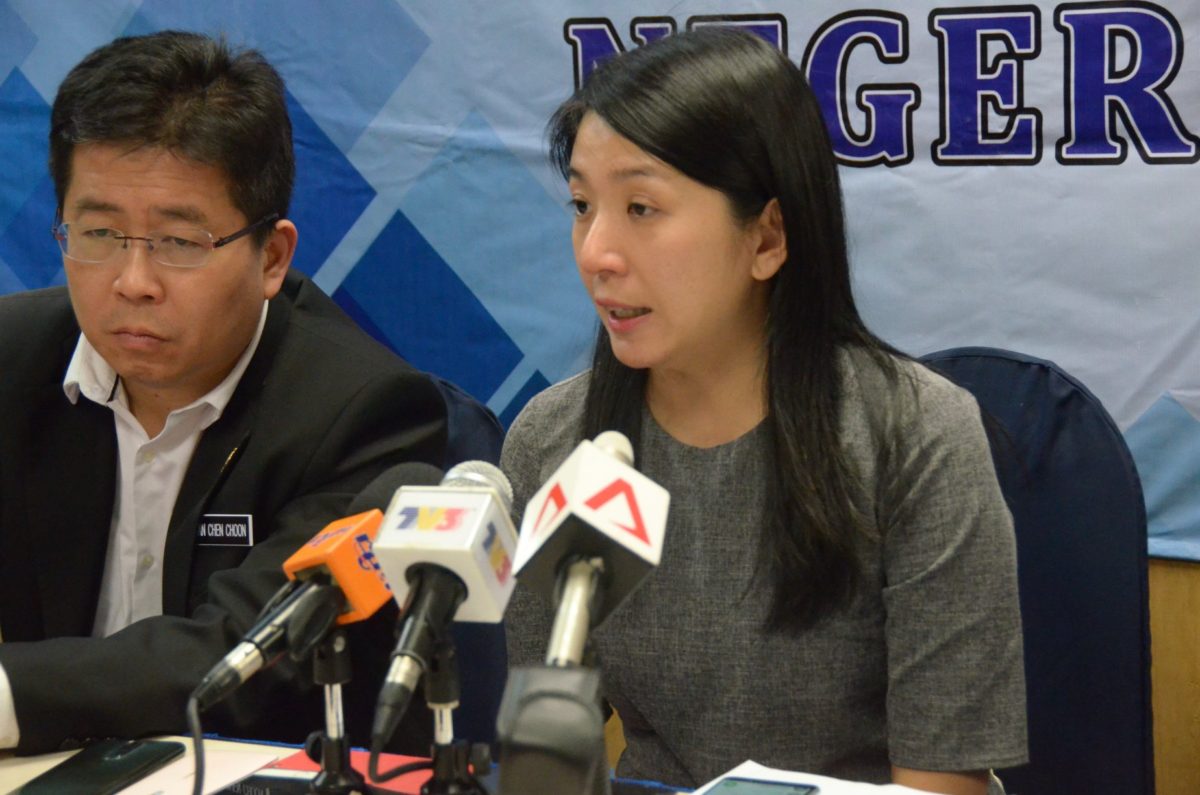KUALA LUMPUR, July 3 — Minister Yeo Bee Yin has threatened to take legal action after allegations emerged on Facebook linking her husband to chemical factories in Pasir Gudang, amid air pollution that has sickened hundreds.
A poster on Facebook associated Yeo’s husband, Lee Yeow Seng, who is IOI Properties Group CEO, to three chemical factories in the Johor constituency — IOI Pan-Century Oleochemicals Sdn Bhd, IOI Pan-Century Edible Oils Sdn Bhd, and IOI Lipid Enzymetec.
IOI Pan-Century Oleochemicals and IOI Pan-Century Edible Oils are wholly-owned subsidiaries under IOI Oleochemical Group, the resource-based manufacturing division of IOI Group, while IOI Lipid Enzymetec was sold to Loders Croklaan Group BV last January, of which IOI Corp retains a 30 per cent stake.
“This dishonourable statement is an insult to the hundreds of government officers from all agencies involved in handling the recent Pasir Gudang health problem,” Yeo, who is Energy, Science, Technology, Environment and Climate Change Minister, said in a statement.
“Their action in politicising this incident is disgusting and vile because they ignored the feelings and trauma experienced by parents and children affected by this situation.”
Yeo was responding to a post by Johor Umno that asked the minister to confirm allegations in a poster accusing the government of inaction in the latest Pasir Gudang pollution case because three chemical factories were owned by IOI.
In response to Yeo’s statement, Johor Umno’s Facebook page claimed that it had never questioned the duties of government officials and agencies.
“The question is simple, correct or not? So, answer yes or no.”
The authorities have yet to uncover the cause of breathing problems and nausea in Pasir Gudang, which were attributed to air pollution, that caused over 700 people to fall sick and hundreds of schools to shutter temporarily.
Yeo said last Monday that the current Pasir Gudang health situation was unique and differed from the March incident of a toxic waste dump in Sungai Kim Kim in the area that sickened thousands.
According to her, gas readings at schools of affected students were normal, while urine and blood tests on victims uncovered nothing.
“It can be concluded that unsustainable development in Pasir Gudang is the main contributing factor in this health problem.”








